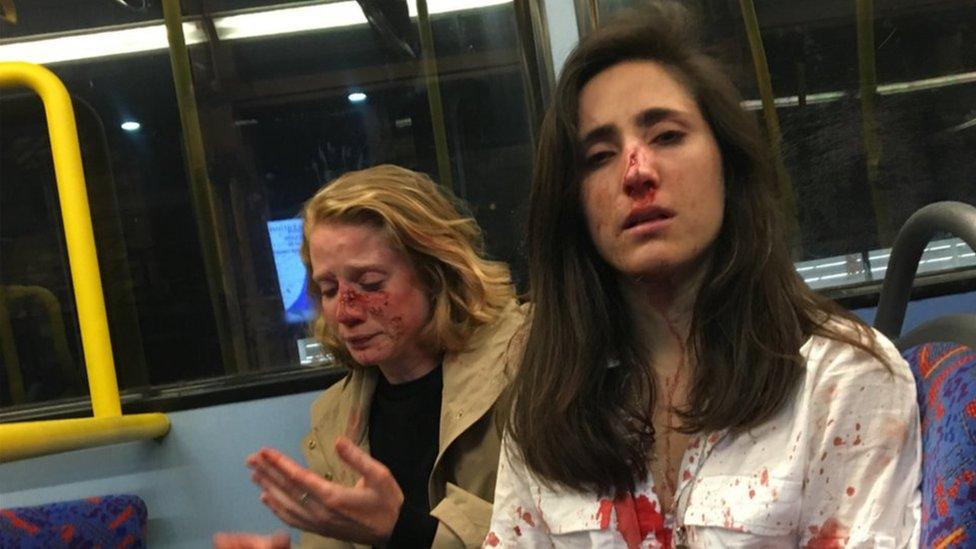LGBTQ+ people 'feel threatened on London public transport'
- Published
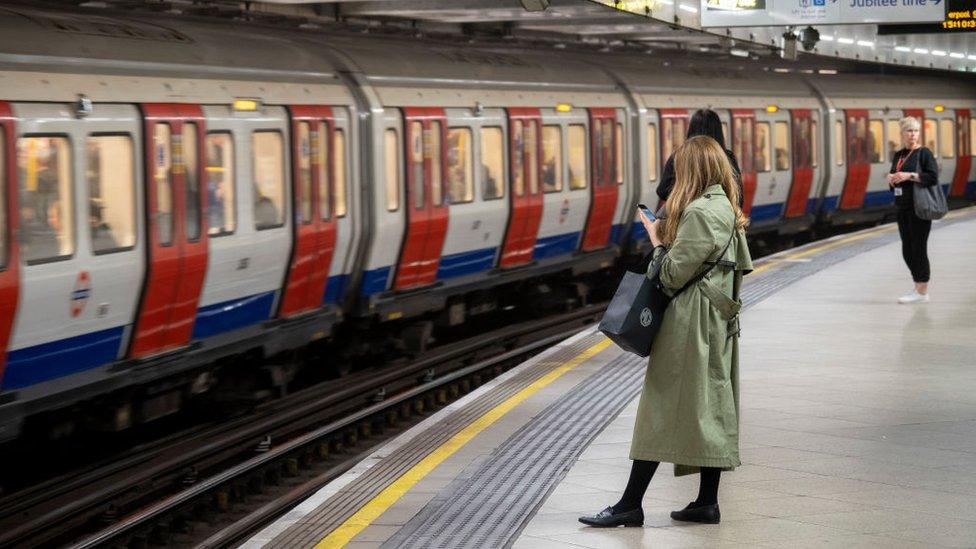
One passenger who was punched said no witnesses intervened
One in five LGBTQ+ people have faced abuse on public transport in London in the past year, new research indicates.
Two-thirds of the 600 people surveyed by London TravelWatch felt there was always a possible threat of violence or harassment when using public transport.
Two out of three of those who had experienced abuse or harm said that bystanders did not intervene.
Ash Morgan, 28, said he was punched in the head on a train at Clapham South in March on his way home from work.
One of the things that upset him the most was the "lack of compassion" from other passengers on the Tube carriage, he told BBC London.
"No-one asked if I was OK or helped me up from the floor; just a total lack of compassion," he said.
The survey also found that four out of five respondents said they changed their behaviour or appearance to "fit in".
Ash said that he was also one of those passengers who did this to avoid conflict.
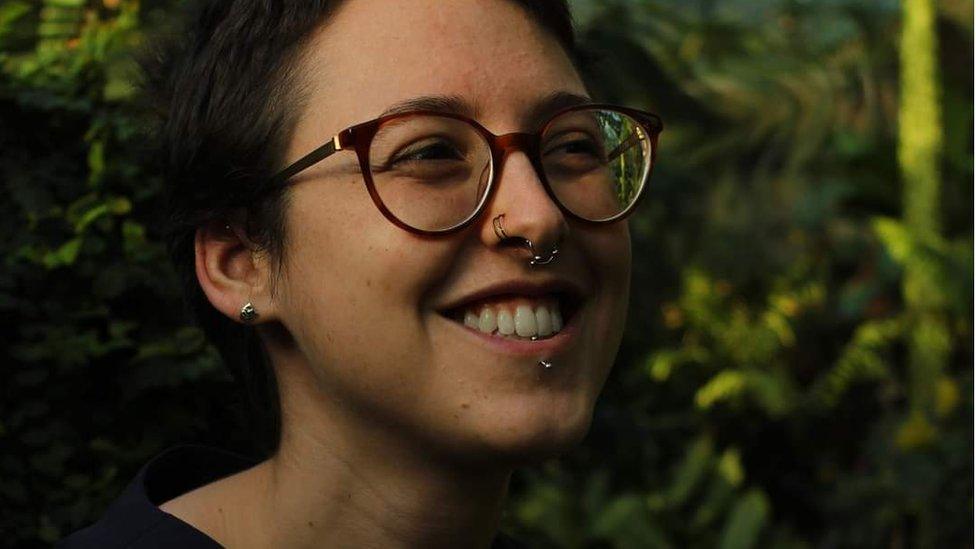
Ash Morgan said he could not use the Tube for weeks after the incident
He explained: "I now second guess what I'm wearing; I try not to wear anything too bright and I don't wear my pronoun pins on public transport."
He said that when reporting the incident to station staff and seeking advice about reporting it to the police, he was told "don't bother".
This was despite recording the carriage number and time.
British Transport Police told him that they would not be able to investigate, he claimed.
Ash said he suffered from PTSD on account of the incident, saying: "I just feel it was handled appallingly start to finish. I couldn't use public transport for weeks after and still have trouble on the Tube as a consequence."
The passenger watchdog said many LGBTQ+ people it spoke to had little confidence or trust in the police, adding that this often led to incidents on London's public transport network often going unreported.
More than four in five respondents who said they were victimised on public transport in the past year did not report their experiences to the police, either because they felt they would not be able to do anything, or for fear about how they or their report might be handled.
Michael Roberts, chief executive of London TravelWatch, said: "Worryingly, more respondents said London had become less safe in the past five years than those who thought it had become safer.
"This situation should not be accepted anywhere in a tolerant society, and certainly not in a vibrant, diverse world city such as London."
Community's 'constant alert'
Siwan Hayward, Transport for London's director of security, policing and enforcement, said: "We are committed to ensuring all passengers and staff are protected from harm and we have a bold and clear campaign across our network which encourages customers and staff to stand in solidarity against hate and abusive behaviour.
"We will continue to work closely with LGBTQ+ groups and stakeholders in response to the London TravelWatch recommendations to ensure that no-one ever faces abuse or discrimination for who they are."
Det Ch Supt Paul Furnell, of British Transport Police, said: "Preventing and tackling hate crime is a British Transport Police priority. Everyone has a right to travel without fear and no-one should be subjected to violence or harassment because of who they are.
"We work closely with LGBT charities and the community to ensure that we understand the issues that they face and can take proactive steps to prevent hate crimes.
"We conduct highly-visible patrols and dedicated operations across the railway to ensure the safety and security of passengers and staff.
"Our officers are ready to respond to incidents of hate crime immediately, and, with access to more than 150,000 CCTV cameras across the rail network, they can quickly identify offenders and make arrests."

Analysis by Lauren Moss, LGBT and identity correspondent
This research, although perhaps shocking, isn't really hugely surprising, unfortunately.
Experts who study hate crime say it often bubbles up online where a lot of people who don't know each other come together on social media platforms.
When it moves away from the digital to the real world, it tends to play out in other busy but seemingly anonymous settings where people collide - often that's public transport.
The bulk of offences are public order - so insults, intimidation and threats that can lead to more.
Many LGBTQ+ people I speak to have experienced abuse or been targeted because of their identity at some point in their lives - even in bustling cities like London.
For some, it's sadly a regular occurrence that they say they don't report because it's so commonplace it would be exhausting to keep reliving it; or they don't have confidence in what action will be taken.
Although recorded hate crimes targeting someone because of their sexual orientation did drop slightly in the last year, they're the second highest after race-related hate offences.
Hate crimes targeting transgender people were the only category to go up, continuing a rising trend in the last couple of years.
Police forces including the Met have increased the number of dedicated LGBTQ+ officers to try and encourage victims to speak out. But trust is a work in progress between authorities and the community.
Many survivors and charities will say these numbers are the tip of the iceberg.
For anyone affected by this research, Galop's National LGBT+ Hate Crime Helpline is available by phone on 0800 999 5428, via email at help@galop.org.uk or through live chat at galop.org.uk.

Listen to the best of BBC Radio London on Sounds and follow BBC London on Facebook, external, X, external and Instagram, external. Send your story ideas to hello.bbclondon@bbc.co.uk
Related topics
- Published20 October 2023
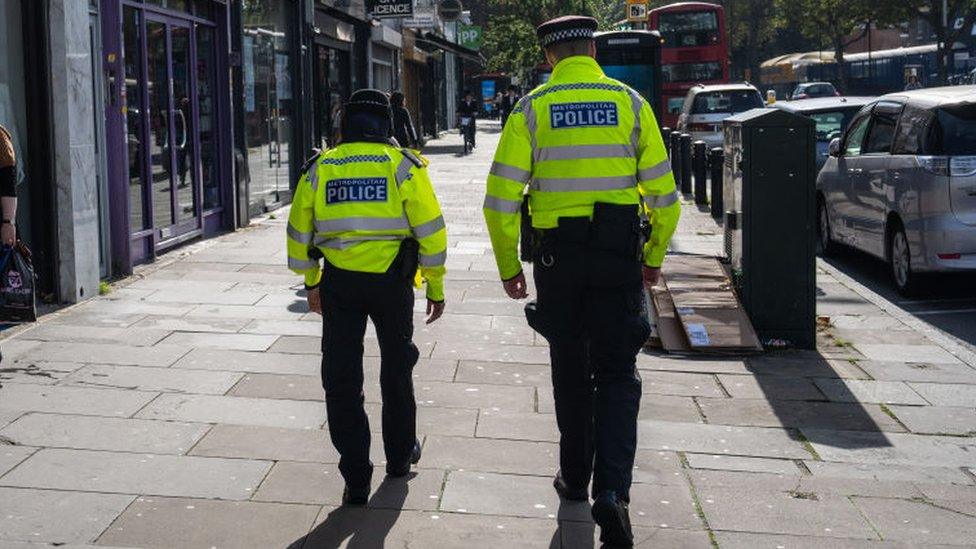
- Published6 October 2023
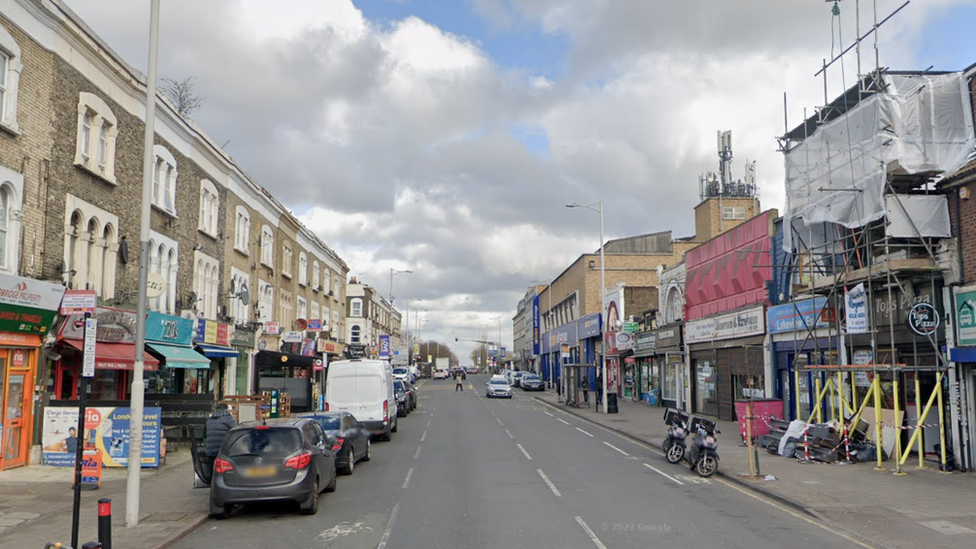
- Published21 August 2019
